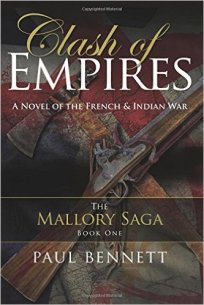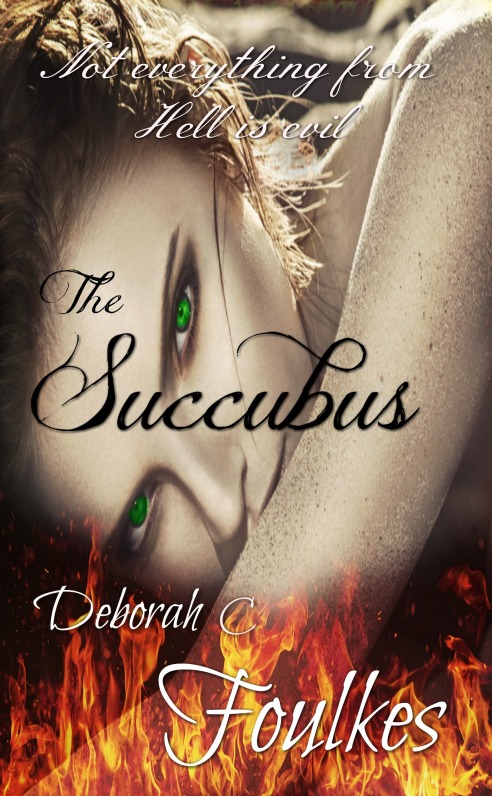Finding Benedict
I remember being at primary school—maybe around seven or eight years old and I’d written a poem about being a swan. The local vicar Mr Escrick had come to do the morning assembly and had heard my poem. He’d called me up front and asked me if I knew the story of why the three swans was the emblem of Selby.
He told the story of Benedict, a monk from Auxerre who had a vision that he should build a church honouring St Germain. The place would be on a river with a great bend and St Germain would give him the sign of three swans.
From a young age, I fell inlove with the story and I’d always loved Selby Abbey as a building. A place where I was safe and comfortable. The story of course had the romanticism of a legend that was used to hook in the tourists, and of course I have a really corny tale of what had pushed me to write the story as a fiction book. Walking over the Old Toll Bridge there were three swans swimming on the river Ouse and seeing them the story of Benedict came to mind and with that was the question why no-one had ever written it as a book. See told you—corny.
So, the first thing I had to was to break down the myth and pull it apart like any historian, but the stumbling block was finding any records that I could pull fact from. I contacted Auxerre for information about Benedict, but received nothing, so I had to surmise.
However, by pulling apart a much loved story and writing a book caused a lot of anxiety. Selby loves their legend and very precious about it, so I had to take a gamble. The biggest issue was in a document that was written by a monk 100 years after Benedict, there is no mention of Benedict being given the sign of the three swans. So where did the three swans come from? Not from Benedict’s vision, but to openly challenge that could be the kiss of death on my future book.
And that was the risk I took with taking this story on—taking some liberties with creative license while keeping some historical context. The struggle between author and historian—the knowledge that by putting my version of Benedict out there I was basically offering myself up to some seriously harsh criticism. But I had to write it—compelled.
As I finish my take on Benedict, I reflect on a story that I fell in love with as a child and how that has grown and developed as I have into adulthood. Understanding the real Benedict and how no matter what was written about a mild mannered hapless monk, Benedict was neither of these. He had a plan—he had to have a plan. This was man who was fired from the church he founded for castrating two thieves. He has been a great character to develop and I must say that I will miss him and I hope that at least a few of the Selby Residents enjoy my version of Benedict’s story as I have writing him. 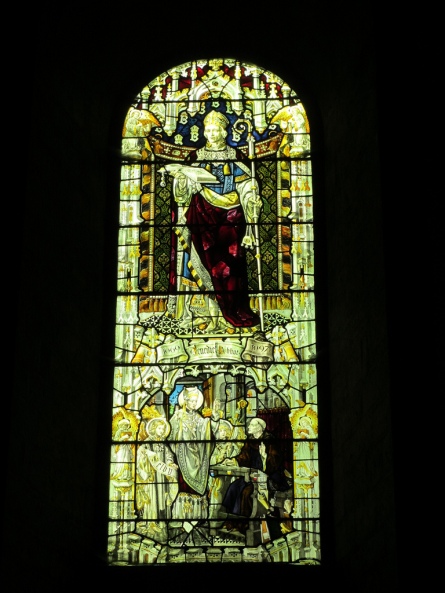
Lakeland and Hopkins
During my research into Matthew Hopkins The Witchfinder General, one episode stands out above the rest for me and that is the case of Mary Lakeland. It was in this case that Hopkins seemed to change from his usual procedure and he burned her at the stake. The common punishment for those accused of witchcraft if they survived the interrogation was hanging. This was written in the Demonologies set out by King James I, burning was usually reserved for heresy. A little different to our European counterparts, who did burn their witches.
Mary Lakeland was according Malcolm Gaskill was the wife of respectable barber and was known to be pious in her nature and referred to as professor of religion. For a woman this would have been unusual and could have indicated her being part of some radical sect. This may have caused alarm bells within those of religious power. Her reputation had also gained her enemies and with that so came the rumours of witchcraft, just as those who were Quakers or Baptists were decades later. When her husband died this allowed her to be open to further rumours. After all a dead husband, a religious understanding and annoying locals would have just added to the evidence used to accuse her of witchcraft.
Under pressure from Matthew Hopkins, it is said that she buckled and confessed that she’d conspired with a Alice Denham to send imps to harm William Lawrence after he called a debt. Hopkins in his interrogation used walking as his tool and exhausted she’d confessed to the devil coming to her bedchamber and much more.
The time she sat in gaol waiting for her execution she didn’t retract her confession even after being allowed to sleep. On the day of her execution she was tried for murder and treason, placed in barrel of pitch, chained to the post and a fire was lit.
When placing my research proposal to renowned academics I wanted to know what made Hopkins burn her? The simple answer was that she was burned for treason of killing her husband, but there’s a few things I don’t understand. Was Mary Lakeland tried for treason or witchcraft?
If it was indeed treason, then why was Hopkins involved in the first place. If Lakeland had murdered her husband then surely the Justice of Peace would have been able to carry out the execution instead of paying Hopkins.
If she was tried as a witch then why did Hopkins burn her? There would have been others accused of witchcraft who had brought death to their victims and they were still hanged.
Those academics could be right and it is as simple as they say, but there’s just something about it that niggles at me that I can’t quite put my finger on. Could Mary Lakeland have been an extremist religiously, maybe a Royalist too? If that’s the case then the fear of a prominent woman with a clear intelligence would have been seen as a threat by a dominant Puritan area. So could this be evidence that Hopkins was becoming political and it was no longer about a battle with Satan, but an ego driven motivation in order to gain an official title for himself.
But there’s one thing I see in my research that I believe that the tide turned after Lakeland and Hopkins behaviour was becoming telling of desperation to keep his status.
The Storm and The Witches
Looking over the English witch trails it’s not hard to trace the roots back to James I and the story of his betrothed being kept away from Scotland by storms. But how true is this. Did that one incident really fire up the paranoia that James had when it came to witches or was it something else altogether.
If we go back to the September 1589, Princess Anne was due to set sail from Denmark to Scotland to meet with her betrothed King James. Three times her crossing was marred with dangerous storms and westerly winds. So fierce were the storms that the princess was nearly killed when three cannons broke loose. The Gideon had no choice but to keep turning back. The two clergy onboard Dr Knibbe and Dr Kragg were asked to offer prayers, but nothing changed. It was then that the admiral Peter Munk blamed witches. He confessed that he’d argued with a husband whose wife were rumoured to be comfortable with the dark arts.
Yet upon reading further, James at this point is just anxious to get to his new bride safely and makes little mention of witches. In fact when he sets sail to Oslo where the princess has finally landed, the storms are in his favour.
So where did James’ idea of witches come from? A conversation with the admiral maybe?
The famous Scottish witch hunts had caught James’ attention in 1590-91 a year after the storms could be coincidental, but also could be a sign that suspicious nature of the storms had reached the king’s ears.
We know that James’ faith was a strong one and with that he had a fear of the powers of evil and the black arts. He was also well versed in biblical passages, with a belief that Eve was seduced by Satan reinforced the idea that the fairer sex were susceptible to Satan’s seductions. He even published is own thoughts eight years later called The Demonologies where he discussed the practise of witches and what to look for when suspecting that devil had marked his intended.
James became King of England in 1603 and he chose to carry those philosophies to England and had his book republished. But James’ mind-set must have been one of trying to prove himself. Elizabeth I had during a reign created an age of some stability, later nicknamed as the Golden Age. She was the last of the Tudors and with that James was arriving from a foreign land trying to emerge from his cousin’s shadow. One of the first things he did was to tighten the Witchcraft Act, and he saw himself as Great Knight that had stepped from the pages of Revelation in order to protect his kingdom from the evil of witches.
On reflection it seems to be that James’ already pious nature and his passion for biblical teaches us that he feared the Devil and so that fear would have already been ingrained within him. His time growing up as a young king, he would have felt danger at every turn and so paranoia would also be part of his make-up. So it’s likely that the storms that hindered Princess Anne’s crossing and the comments made by admiral seem to have watered and fed the seed that was already germinating.
The Year I Nearly Gave up Writing
This year has been one of the most difficult in a long while not just personally, but creatively. The fall out of restructure at work, where there were losses, changes in job roles and the pressures that go with it, there’s been a total shut down of most of my creative juices as I’ve struggled intensely with anxiety and depression. The feeling of total helplessness and lack of self-worth has been hard demon to fight against. However, I’ve always been a fighter and have the attitude that it’s a demon I will never let beat me into submission.
So how has this affected me in doing what I love? Well the downside of working to beat it, means that all my energy has been focussed on getting better and writing has been the victim that has taken the brunt.
I’ve always been vocal about how much writing has been a massive factor in keeping my mental health at bay. It was something that was encouraged as a teenager in order to stop some very destructive behaviour, because that’s what happens. When all is against me, I start to exhibt self destructive behaviours that are almost in danger of becoming self fulfilling prophacies. I am my worst enemy, but this time, my writing block has turned from one brick to a fortress that I’ve struggled to break down.
This year, I should have finished the last Mina Marley book and completed my next history fiction, but I’m nowhere near. I feel that I’ve dropped off any writing social media platforms and questioned why should I even bother to continue. The self-doubt almost crippling. Staring at the pc screen for ages, or even sometimes not even picking the laptop up. A far cry from being permanently attached to it. There’s a strange feeling when something that was once so natural becomes difficult to do. Do you accept that maybe you got it wrong and this isn’t what you are at all? A fake trying to make it look like you know what you are doing and have some talent? A break was needed and some healing, so I took it. It’s the first time, I’ve been grateful to be self-published with no agent or publisher pushing for deadlines, because this year I wouldn’t have made it.
So 2017 has been the year that I nearly stopped writing, but I’m determined to change that in 2018. There’s a lot to be grateful for and it’s easy to lose sight of that. I will be going into the new year with a much more positive attitude. The books will be finished and a fresh start.
Getting Your S**t Together
We all have this idea as children that when we get to a certain age we will have everything that we need to be an adult. Well on the 1st of April 2017 I reached 40 and the six months running up to it, I had a panic meltdown about the whole reaching 40 thing. It wasn’t about the age as such, it was more about that I had was fast approaching an age where I should be more adult and more grown-up and all I was feeling was out of my depth and like I was wading in mud. It didn’t help that for the past two years my job in a public library was in major restructure and public consultation. The Local Government had to save money and Libraries was the easy victim. The uncertainty and reality had brought to light just how insecure my career choice was and the greater need to find out where to go next. That created anxiety.
When I was a child right up until I met my daughter’s father, I wanted to work in movies or TV. An actress for starters and then producing and directing. My choices after returning home from living in London meant that I was soon living a family life with a young child and a fiancé. My twenties were spent trying to juggle motherhood and full time work as well as being a partner. Admittedly not all these I did well, but then when I reached my 30’s my life changed beyond recognition. I was suddenly a single parent, but I was on my way to getting the life I wanted. Being part of a relationship from a young age had caused me to lose myself and so much of my 30’s was about self discovery. I went to university and discovered that I was actually not that stupid and I had the ability to do anything. Then I published my first book and continued to write.
The loss of both parents became one of my toughest battles to deal with. The year my father died in 2013, I had rather stupidly got myself involved in an online friendship that became too involved too quickly and of course, as so often happens, any online connection is not a true one and I got hurt. So this on top of grief caused a massive meltdown that was dangerously close to destroying me mentally and emotionally. I’m no stranger to depression and anxiety having suffered since my teens, however, 2013-2014 was nothing that I’d dealt with before. But luckily for me I had a lot of support and my own inner fighter was determined never to let it beat it and I did.
All great but then as the forties approached I began to look at my life in comparison to everyone else. On Facebook all my old school friends seemed to have got all their shit together and I was still playing around and deciding what I was doing. I know Facebook is a lie and we all put our Facebook Front on, but still I was doubting myself. I’d not got married, I had one child who was beautiful and talented, but not had the big family. All the things society says you should do.
Then the day arrived and it wasn’t too bad and I realised that this is my life journey no one elses and so what if I don’t have my shit together I can happily go to my deathbed and say I had a blast at getting to the point of getting my shit together.
So my message to all is it doesn’t matter what everyone else is doing. It’s your life and do what you live and laugh often.
His Last Witch Hunt by Deborah C. Foulkes
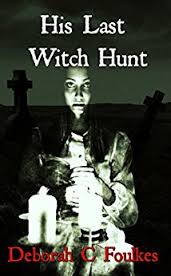
An intriguing tale that takes place during the English Civil War about The Witch Finder General, Matthew Hopkins. The village of Hopton is shaken by a death and witchcraft is suspected as the cause. Matthew and his crew find themselves embroiled in a very confusing situation compounded by many factors that make this case very difficult for all involved. The author does a fine job in rendering the hysteria, the fear and the hatred that the villagers feel towards the accused. The characters are portrayed in a way that takes the reader into the mindset of this unfortunate time period of inquisition and religious fanaticism. The story starts out to be a straight forward example of a superstitious accusation but the author entwines other human frailties and emotions into the mix making for entertaining plot twists. This is certainly a page turning delight to read. 4.3 stars
Suzanne Jackson
I met Suzanne at an author event we were both attending and as what often happens we swapped books. I’ll be honest, the cover put me off a little. It seemed to shout out everything that I didn’t like. Like a Regency Mills and Boon, however, the first chapter Suzanne offered me had me gripped and once I returned home and downloaded it, I realised that it was exactly the book I loved.
The Beguiler is set in the Regency period and centres around two characters Rebecca, a witch and Nicholas, a failed trader. After Rangers raid Rebecca’s town hunting for witches, Rebecca is thrust into the path of Nicholas, whose family are famed for being one of the best in witch trading. They capture witches maximise their powers, before selling them to prospective buyers for profit. However, Rebecca soon gets under Nicolas’s skin and when her power is shown to be beguiling, then the price on her head is much greater. Now the two have to work together in order to save each other.
Suzanne’s writing reminded me a lot of Paula Brackston’s Winter Witch. The narrative and themes were very similar, making it a very easy and addictive read. I couldn’t put it down once I started and was in love with Rebecca from the very start. This is Suzanne’s debut and I would say it’s one hell of a debut and could be one that makes a big splash in the right market. She is an amazing story teller and The Beguiler is beautiful piece of story telling. I’ve no idea if this will be a continued series, but I know I would read more of Suzanne’s work and through I didn’t love the cover, what’s inside it is perfect for those who love Brackston or Harkness.
Interview with Suzanne
Suzanne Jackson lives in England, in a small village not far from York, and is married and has two grown up children. Until recently she also had a very old Burmilla cat. As a teenager, Suzanne wrote poetry and short stories purely for herself, cutting out pictures from magazines as inspiration. She loves reading Romance and Fantasy novels, and very much enjoys Romantic Fantasy, where both elements are combined.

The setting for The Beguiler is Regency. What made you write in that era?
Hello, Debby. Thank you for welcoming me onto your blog. It’s great to be able to talk a little bit about my book The Beguiler. Late Georgian, especially the Regency period, has fascinated me for years. I have always loved visiting historic houses, been amazed by the extravagance, opulence on a massive scale. But the people who lived in such luxury were a small part of the population. The servants who made the houses run like clockwork were paid very little and had a hard life. These two parts of society are never meant to touch, not completely. But what would happen if they did? The thought of different parts of society coming together opens up a lot of writing ideas for me.
England and Europe has a deep history with its witches. What research did you do on that history?I think I gathered a lot of information over several years, purely by visiting places, watching documentaries, and reading. Therefore I did very little actual research during writing the book. I will never forget the visit I made to the area around Pendle Hill, Lancashire, though. The day was dark, rainy and very eerie, bringing to mind the poor unfortunate souls who were found guilty of witchcraft and hanged on the moors above the village in the 17th century. It must have been a terrifying and painful way to die.
The witch traders and the rangers seem to have a lot of parallels with what happens in the modern world. Was that something that was in your mind when writing?
There are parallels, but I didn’t deliberately think of this at the time. For me, it’s more a case of these kinds of events have always happened, throughout history. Unfortunately, it still happens today.
Who inspires you?
I have always read books, for as long as I can remember, and I’m sure many of my childhood books inspired my love of reading and writing. I discovered Science Fiction, and particularly enjoyed John Wyndham’s novels. Gradually my reading changed and I began to enjoy Fantasy, and also some Romance. By chance I picked up a novel by Juliet Marillier, and I realised how much I loved reading Fantasy and Romance combined.
What is your writing process? Do you have a strict regime that you stick to?
I try to write in the morning. It doesn’t always happen, but this is definitely a good time for me to write. I often listen to music, especially when developing that first draft, as it helps me to shut off the world around me. Editing is different, and I need peace and quiet for that.
What advice would you give to other writers?
Don’t give up! And keep learning and improving. Getting a publisher can take a long time so don’t get disheartened. If you love writing and are determined you’ll most likely succeed eventually. The main thing is to enjoy the journey, the love of writing.
What’s next for you?
I have a couple of ideas brewing at the moment. I would like to revisit my Regency world, and a couple of the characters seem to think so too, and might appear in another book. I also have a different world entirely in mind. It is all early days yet, and my stories change a lot during the writing process, so I don’t want to say too much about it at this point.
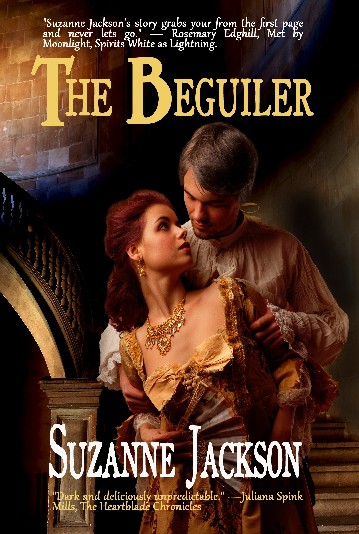
Books of 2016
As the first day of 2017 starts to end, it’s time to reflect on the books that I’ve been reading in 2016. Admittedly, reading has been a struggle this year with job redundancies taking mind space as well as trying to finish books that I’ve started. So here is my list of the books I’ve managed to read and enjoy. They are not listed in any order of preference.
The first one I’m going to talk about was one that had me gripped from the very first page and I couldn’t put it down. A wonderful gothic ghost story and I highly recommend any of Jeanette Taylor Ford’s work
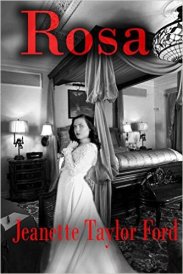
2. The Witches Daughter by Paula Brackston. I’ve just finished the sequel to this and I love the characters and world weaved by Brackston. If you are a fan of history with an element of fantasy then you’ll love this just as much as I did.
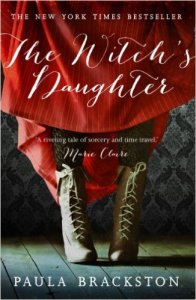
3 I was very lucky to get to read this before release and I was surprised how much I enjoyed it. Clash of Empires by Paul Bennett is set during the French Indian War and at first I was unsure whether it was something I could get into, but I was wrong. I learned so much about a small part of American History and the characters created were believable and well written. Again another history fiction book that’s a must read.
4. Ben Kane is always a favourite of mine. There’s very little this author can do wrong and not only did he release a new book this year, but I had the privilege of meeting him once again. Always a gentleman and so clued up on his history. If you love Roman History then this man is a must read.
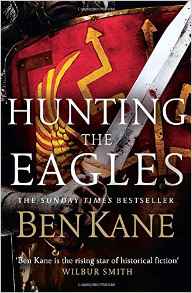
5. David Baker doesn’t write the genre that would usually appeal to me, but the Viper Series is always a very good read. The characters are ones that can be invested in and his writing is light and easy to work with. I enjoy reading David’s work and with this series always hitting the bestseller then I’m not the only fan.
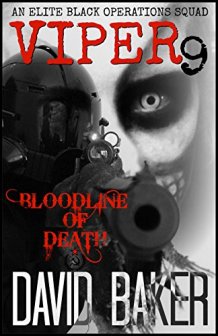
Grimms and I
Reading has always been a big part of my life and one of my favourite reads was my collection of The Brothers Grimm stories. My favourite being Faithful John. A story of how a faithful servant saved his prince and paid the price by being turned to stone. Only the blood of the prince’s children would bring him back to life.
What appealed was the darkness of the stories that involved some form of sacrifice in order to get the happy ending and I think anyone who reads my books can agree that I make my protagonist work really hard for their happy ending, showing how much those stories have influenced the way I write.
So, when I wrote Celestia, I wanted to write something that reflected my love of fairy tales and told in a similar way. The story is a typical prince and princess story betrothed to one another, but of course this is one of my creations and so the twists and turns in the story and characters have a darker side. I play with the stereotypical characteristics and have created my own fairy tale, which is both dark and funny.
The Mythology of Succubi
Recently I was asked about the subject of my new novella and The Mina Marley Chronicles. They had no idea what a Succubus was and as I explained I realised he might not be alone.
Incubi and Succubi were considered sexual demons who would rape their victims in their sleep and their victims would deteriorate in health and some die. It is said that Merlin was fathered by an incubi and the reason for his power.
In the bible, Lilith, Adam’s first wife became the first succubus after having sex with the angel Samuel. (Aaah, your thinking. That’s where Mina Marley comes into it)
In the Malleus Maleficarum written by Henrick Kramer, the succubus would collect semen from her victims, then the incubi would impregnate their female victims. The children would be born deformed and become witches. There is no explanation of why using the semen of human men put into human women would be any different to normal conception. But the Maleficarum is not known for its consistencies
So why the succubus? Well because I suffer with a sleep disorder known as Hypagognia and Sleep Paralysis. It’s a condition where I hallucinate at the point of sleep and so see “Ghosts” and then have the feeling of being pinned down on the bed unable to move or breathe. These episodes were blamed in days of old on the Incubi/succubi and so doing research into the disorder sparked an interest in the mythology.
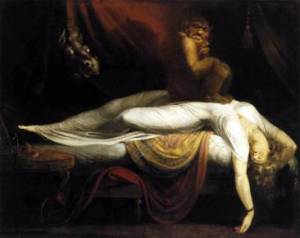
So that is when I wrote The Succubus. I wanted to play with the idea that the demon could bring with her a gift to mankind, not unlike Merlin, but whether it was good or bad would depend on the human and that’s what the story is about.


